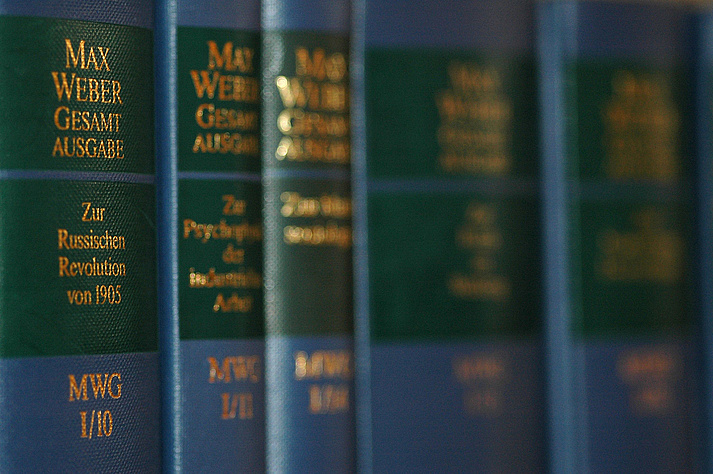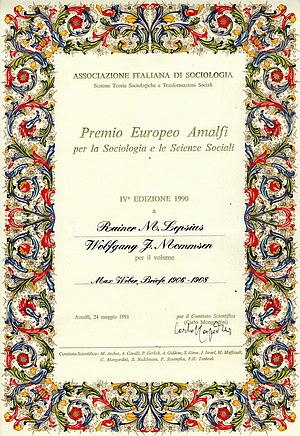Significance

The Max Weber-Gesamtausgabe makes a significant contribution to the scientific and cultural history of the “change of epoch” around 1900. In a very new way it provides access to the scientific and political context as well as the networks surrounding Weber’s work.
The editorial approach to Max Weber’s writings by experts infused a new Weber debate in various disciplines, its reception promoted current research issues by medievalists, urban researches, musicologists or sinologists.
Cultivating a classic with a historical-critical edition reaches beyond the scientific circles. The Max Weber-Gesamtausgabe secures and maintains Max Weber’s work in the cultural memory.

Awards
The first Letters volume of the Max Weber-Gesamtausgabe – comprising the letters from 1906 until 1908 – was published in 1990. A year later the edition was awarded the European Amalfi Prize for Sociology and Social Sciences (Premio Europeo Amalfi per la Sociologia e le Scienze Sociali).
Awarding of the Premio Europeo Amalfi per la Sociologia e le Scienze Sociali 1991 to M. Rainer Lepsius and Wolfgang J. Mommsen.
M. Rainer Lepsius donated this document to the Max Weber-Arbeitsstelle Munich.
Comments on the Complete Edition
"… make this volume a well accessible treasure chest being of interest not only for Weber specialists but for everybody working on this era. Everybody can appreciate the amount of work devoted for transcriptions alone just looking at the manuscripts added in facsimiles."
"From an editorial point of view as well as typographically this volume of the MWG is another brilliant achievement on which one can only congratulate publishers and publishing house."
“This is the first time his archived notes have reached the light of day and so a frisson of excitement should ripple through the world of Weber scholarship.”
"Due to chronology and pertinence alone, one is able to comprehend according to the MWG, how the uniform thought of Weber’s works emerged, in its beginnings and developing stages first only partially and later more and more defined. And precisely this very fact makes the MWG a foundation indispensable for every intellectual-historical research."
"There is no doubt: the thoroughly edited and richly annotated letter volume with its very useful indices presents an outstanding editorial achievement, pleasing by no means alone those driven by an unsatisfied passion for texts written by Max Weber".
"And now the letters. They do represent a MWG sensation, as well as, with regard to the annotations and editing an outstanding editorial performance."
